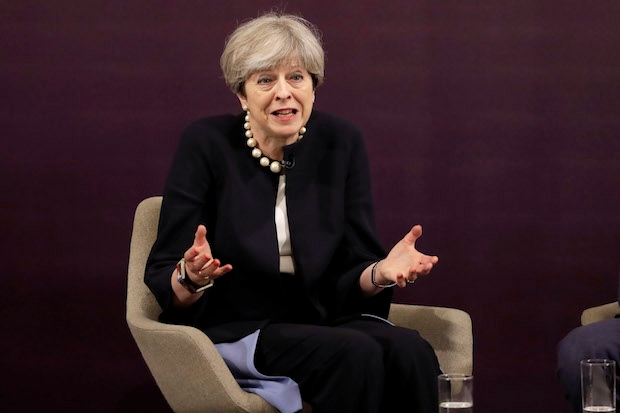Today the House rises for summer recess and, as James writes, Downing Street achieves its immediate post-election aim: Theresa May makes it to the summer recess. The government hopes the break will allow the party to regroup and come back more focused and more united. Whether that happens or not, what is clear is that the Prime Minister’s position will be uphill.
Following her fateful decision to call an early election which saw the Conservatives lose their majority, May is a diminished figure – both within her party and in public. MPs openly make jokes at her expense at parties while her Cabinet talk freely now that her authority is shot. Her former colleague George Osborne describes her as a ‘dead woman walking’, and in the Chamber things aren’t much better: the opposition throw back her doomed 2017 election slogan of ‘strong and stable leadership’ and taunt her claim that without the Tories there would be a ‘coalition of chaos’.
But if Conservative MPs plan to get down to some soul-searching over the long summer, perhaps they could also consider cutting the Prime Minister a bit of slack. Although she is in a mess all of her own creation, she has managed to do the one thing that eluded both David Cameron and George Osborne: selfless public service.
On the day of the election result, it would have been all too easy for May to have said she’d had enough and headed off to the Swiss mountains indefinitely. But doing so would have also plunged her party into an even worse scenario – trying to find a new leader while also trying to prove that they could work as a minority government. May’s decision to stay on is not an example of a power hungry politician desperately clinging to power – even her critics would not accuse her of that. Instead it comes from a place of duty – or in her own words to MPs at a meeting of the backbench 1922 committee: ‘I got us into this mess and I’ll get us out’.
Perhaps this sense of duty is why she never feels the need to bring up or make more of her decision to stay. It’s in stark contrast to David Cameron who spent the EU referendum, that he called, claiming that as a public servant he would stay on whatever happened – before proceeding to resign as PM and quit Parliament for good when things didn’t go to plan. In trading the Commons for a man shed, Cameron not only went back on his promise to stay on as an MP. He also undermined his comments bemoaning how hard it was to keep those who have finished in high office as MPs,
Likewise, George Osborne doesn’t appear to be a shining example of public service in action. Fired by May, the former Chancellor tested to the limits how many other jobs and conflicts of interest he could have, before (when concluding there was little chance to oust May anytime soon) standing down at the election. He is now kicking himself for leaving – and spending his days plotting against his one-time colleagues as the editor of the Evening Standard.
In contrast, May continues on – holding the line and putting on a brave face in public. Given the fractious position the party is in, this may seem like the least May should do – after all, she was the one who brought this upon her party by calling the snap election and then leading the disastrous campaign that followed. However, it’s still worth noting that others before her have done less.
Perhaps voters are beginning to recognise this too. In one of the few pieces of good news for the Prime Minister over the weekend, a Survation poll (the pollster who called the election result) – carried out before the Cabinet briefing war – found that May’s popularity is on the rise again. On the question of ‘who would make the best Prime Minister’, May is back ahead of Corbyn.
On who would make best Prime Minister:
T. May: 43%
J. Corbyn: 35%(via @Survation, 14 – 15 Jul)
— Britain Elects (@BritainElects) July 15, 2017
That’s not to say we should expect a long premiership for the beleaguered Prime Minister – there is widespread consensus in the party (and from May herself) that she will not lead the Conservatives into another election. Being a good Prime Minister takes more than a sense of duty. But as Conservative MPs head back to their constituencies for the summer, they would do well to remember that their current predicament could be a lot worse.







Comments